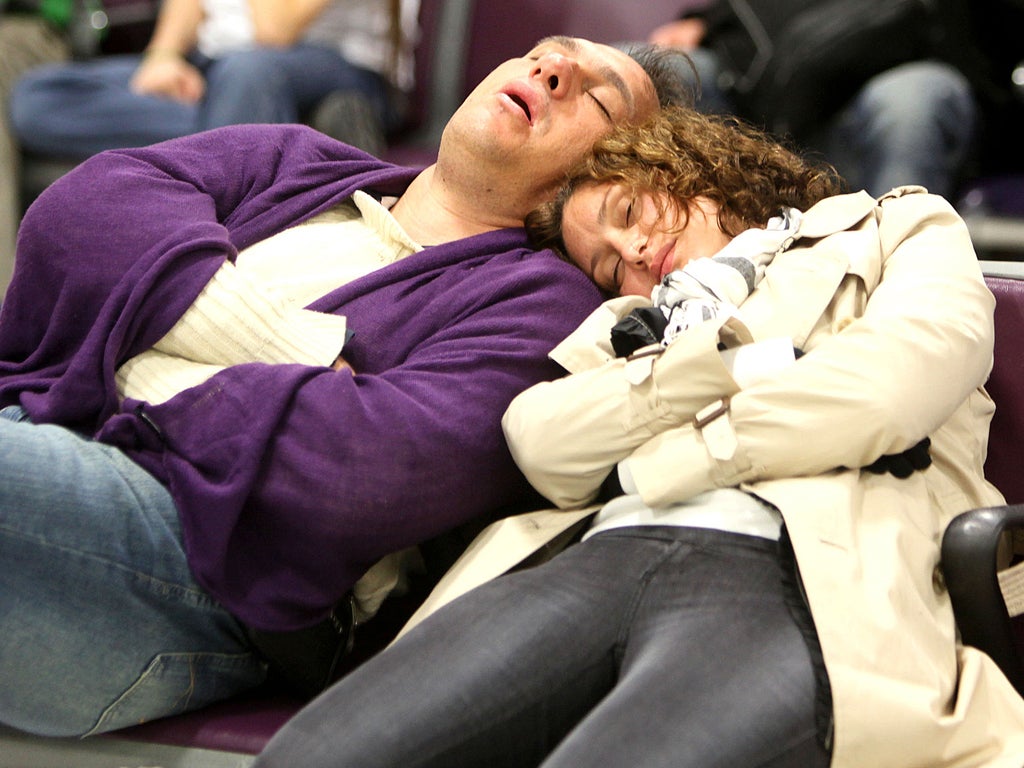It's the journey, not the destination, that really matters - so how did we lose our way?
There's a pill to cure jet-lag and movies on 4G phones: We now consider time in transit as ‘dead time’ that must be occupied or curtailed, when in fact, we should cherish it

On a trip to New York City last week, there was one sight I was determined not to miss. It wasn’t the view from the Empire State Building, or the bright lights of Times Square and it wasn’t even the now famous Brooklyn street corner where Hannah vomits in HBO’s Girls. It was Pret A Manger. Any Pret A Manger would do. (There are more than 30 in Manhattan alone.)
I did have some difficulty convincing my travel companion of why this activity should feature prominently in our itinerary, but soon enough I was perusing the refrigerated shelving of a downtown branch a few blocks south of Ground Zero. I can now exclusively answer the question I know will be foremost in your mind, as it was in mine: yes, they do have different sandwiches there. There was the California Club Sandwich and a Beet and Berry Salad. I opted for the Red Sockeye Salmon Wrap. Oh, the exoticism!
In this way, the familiar sandwich chain, site of a thousand unremarkable lunches, had given me a feeling that five previous days of sightseeing failed to elicit: the feeling that I was really in a different country and a long, long way from home. For a Londoner in New York, this can be a particularly hard sensation to stimulate. Both London and New York are giant English-speaking cities filled with multicultural communities and monocultural high streets. The same gentrification blights Brooklyn as it does Hackney in London, and the same Miley Cyrus twerking headlines featured in newspapers owned by the same Murdochs.
Globalisation, eh? These days, if it weren’t for the jet lag you’d hardly know you were 3,462 miles away from where you first started – and soon even the jet leg will be consigned to human history. This week, scientists announced the discovery of a specific molecule, SIK1, which the body uses to delay adjustment to new time zones. SIK1 is the cause of jet lag, the common traveller complaint which forces you to stop, pause and rest a day or two before you can really feel comfortable in your new location. No longer. The researchers at the Oxford University have already worked their magic on rats and they estimate their pill to remedy jet lag in humans will be on the market within a few years.
Just in time, in fact, to facilitate your 48-hour round-trip to the ruined Inca city of Choquequirao in Peru. Currently, the magnificent sight of the “Cradle of Gold”, with its fabled sun palaces, rewards only those brave adventurers willing to take a two-day trek through the Amazon jungle. The Apurimac regional government has just announced that by 2015, there will be a tramway whizzing tourists there within the hour. And so it isn’t just globalisation’s slow erosion of cultural difference that is changing what it means to travel; in pursuit of convenience we also seem to be phasing out the journey itself.
If you’re an extremely important international business lady such as myself, you may well wonder why a shorter, more comfortable route from A to B would be a bad thing. We tend to think of any time in transit as “dead time”. We aim to curtail it, if possible, or fill it with distractions, if not. In fact, if only because of its increasing scarcity in our connected daily lives, this time should be cherished.
In the specific context of travel, it’s even more valuable. The journey offers a necessary period of adjustment between different locations, an opportunity to consider where you’re going and where you’ve been which is invaluable to your enjoyment of the destination. The more distant and exotic this destination, the longer and more arduous the journey – and that’s exactly as it should be.
It’s traditional to blame cheap flights for everything that’s wrong with modern travel. They may be bang to rights on carbon emissions, worker exploitation and the overuse of neon orange, but if more people than ever before have the opportunity to visit different countries at an affordable price, that’s no bad thing. The bad thing is that while we are all travelling more, we are experiencing travel less. And since flying on certain budget airlines is almost always “an experience”, clearly it’s up the stairs in the first-class cabin where the blame for this truly lies.
On airlines, and intercity rail and even, increasingly, urban public transport, the trend is always towards greater ease, convenience and speed. The explicit goal is to allow a journey from door to door, across oceans and continents, with barely the need to glance up from your iPad to check the Wi-Fi password. Passengers once looked out the window for entertainment on journeys. Then there was a double feature to watch on an overhead screen. Now thanks to 4G phones and the gradual relaxation of the in-flight gadgets ban, the distractions on offer are more varied and luxurious than the average multiplex. (Note: it’s not only travel we’ve ruined; it’s the movies too.)
Childbirth, adolescence and long-haul flights: these are some of the experiences in life that are simply supposed to be difficult, because it’s the struggle that marks the transition in our minds. If you come of age without some mild acne and peer humiliation, can you really call yourself an adult? And if you can get to New York without being stink-eyed and frisked by Homeland Security, how do you know you’ve truly arrived?

Join our commenting forum
Join thought-provoking conversations, follow other Independent readers and see their replies